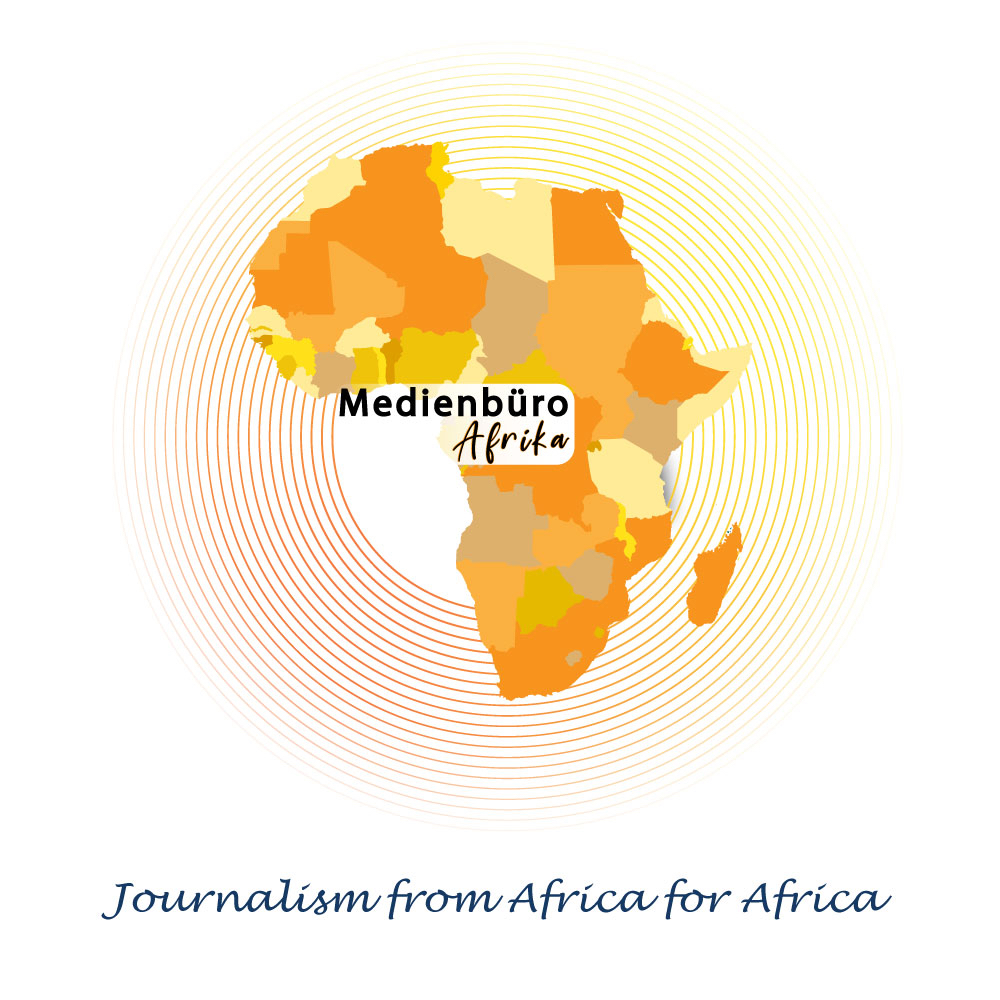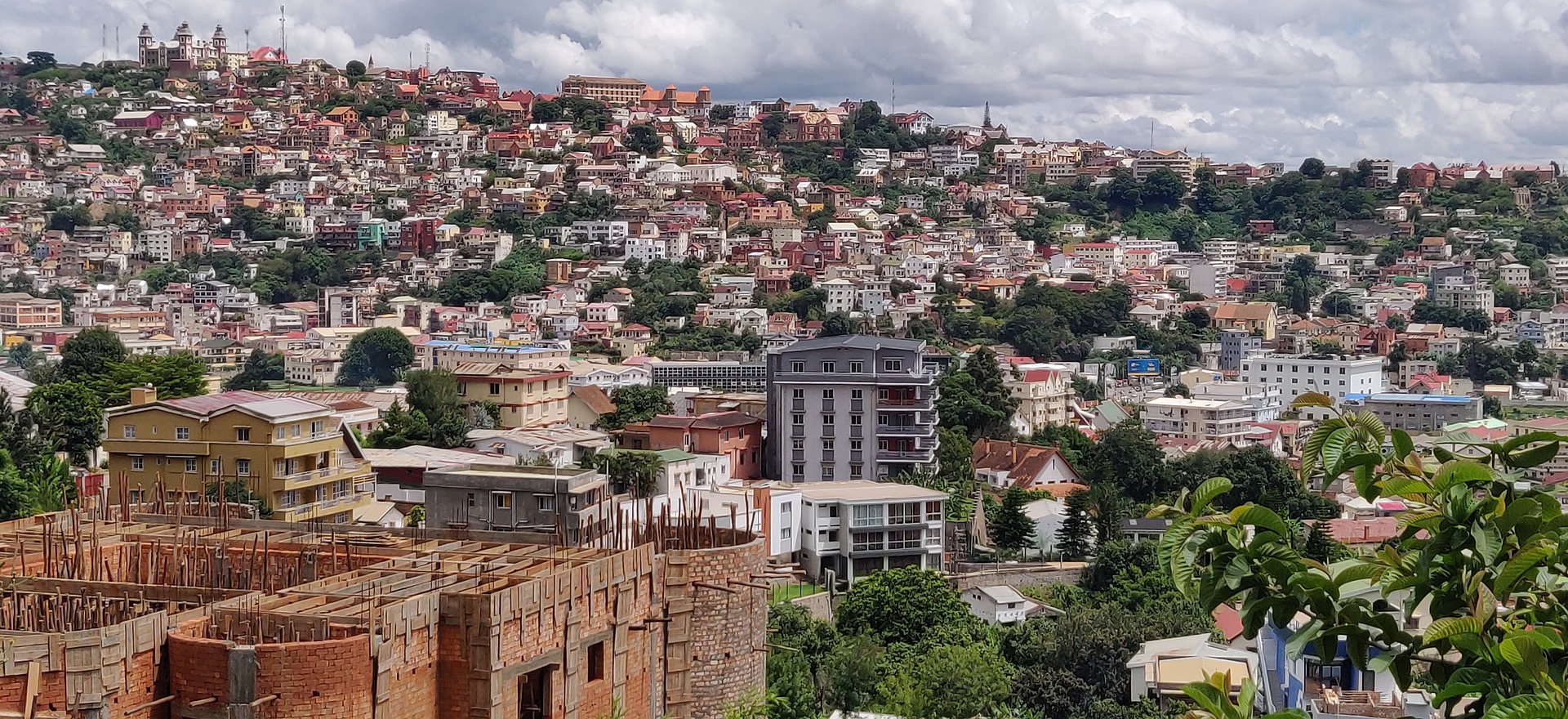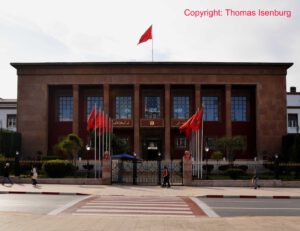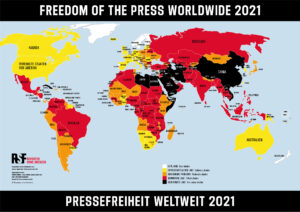Bremerhaven: In mid-July 2021, the consequences of the climate crisis were unexpectedly severe in Germany. Heavy rain and flooding claimed more than 100 lives. Considerable material losses and damage occurred, as well as high financial costs for the reconstruction of the affected areas. The climate crisis was felt very tangibly in this country and triggered many debates – especially during the election period.
15,000 km away, in southern Madagascar, one of the harshest droughts of the last 40 years has been raging since November 2020. However, the first reports on this did not appear in the German media until May 2021. The drought has affected 1.3 million Madagascans, including 70,000 children who are critically malnourished. Without the many international aid organisations providing support on the ground, the number of victims would be dramatically higher. Extreme weather events have been felt first-hand by the population of Madagascar for decades. The island is hit by frequent and intense weather extremes such as heavy rain, floods, cyclones and droughts as consequences of the climate crisis. These cause enormous damage to the already barely existing infrastructure and destroy the livelihoods of many people who are not very resilient and already live on the edge of existence. The consequences of the climate crisis are hitting a country that produces only 0.16 tonnes of CO2 per capita – about 54 times less CO2 emissions per capita than in Germany, for example. This is called climate injustice.
The south of Madagascar lies in the subtropical zone, which is naturally dry with only a few rainy days a year. The vegetation there is unique in the world and has adapted evolutionarily by developing thorns as protection against feeding and sunlight, as well as to reduce water loss and water storage features. The people of this region have lived there since time immemorial and have adapted to the physical conditions both in their way of life and in their culture (e.g. nomadic pastoralism, sweet potato and cassava cultivation). An increase in temperature will have drastic consequences for the people of southern Madagascar: If the rains fail, rivers and lakes will dry up and it will not be possible for the farmers and herders who mainly live there to secure their livelihoods. Harvests fail and livestock perish.
As a result of the deteriorating living conditions, many people are forced to leave their homes. People who have sufficient or just enough financial resources move to other regions with better weather conditions and prospects, or they go to the cities, which are already overcrowded. There, in turn, internal migration – exacerbated by the climate crisis – increases poverty and crime rates: Housing shortages, filth, squalor and crime spread; thus, the climate crisis also leads to insecurity and worsening social and economic problems in Madagascar. Affected people, who have little or no financial resources, simply try to survive under these difficult local conditions. They consume everything that fills their stomachs: Roots, cacti, clay, locusts or recycled leather scraps from old shoes.
International aid organisations such as Welthungerhilfe, the United Nations World Food Programme and Médecins Sans Frontières are trying to help on the ground by providing food and medicine. However, the poor condition of the roads and the isolation of many villages make it very difficult to distribute goods and supply people. The German Climate Foundation, for example, was able to provide help directly on the ground by making a donation to the mayor of the town of Ambovombe. The donation finances the weekly provision of food for 300 people, mainly children, over a period of 6 weeks. However, such measures are only an emergency solution, because in the long term, the causes of the climate crisis must be tackled globally.
The climate crisis is hitting a country that is one of the poorest in the world, plagued by corruption and political crises. More than 80% of Madagascar’s population lives in poverty on less than US$1.90 a day. The climate crisis and its consequences – in addition to the loss of immense biodiversity and the current pandemic conditions – are an additional factor that is already negatively affecting not only the island’s economy and ecology, but also the politics and social fabric of society. As this is an island that people cannot easily leave, the future could see massive famine, further impoverishment of the population, political crises, civil wars, as well as the almost complete destruction of ecosystems.
Historically and currently, countries from the so-called Global North are undisputedly considered to be primarily responsible for the global climate crisis. It is therefore their responsibility to support countries of the Global South, such as Madagascar, financially and technically. This is the only way to alleviate the consequences of the climate crisis. This support could be ensured within the framework of the so-called polluter pays principle, in which the Global North financially compensates for the losses and damages in the Global South. However, the issue is much more complex. Post-colonial structures, unfair global economic structures, resource exploitation and the absence of democracy and the rule of law must be considered in parallel with a functioning global climate policy. The probability that climate-induced migration will increase in the future is therefore very high.
In total, around 19 million people worldwide were already displaced by extreme weather events in 2015 (Neue Züricher Zeitung, 2017). This is double the number of people displaced by violence and war in the same year. In 2050, an estimated 140 million people will have to flee as a result of climate change (Welthungerhilfe, 2020). It is important to note that the majority of these people will migrate within their region or to neighbouring countries. Low-income people have little or no mobility. Moreover, it is impossible to distinguish between the different causes of flight. Consequently, it will be difficult to collect and predict accurate figures on climate-induced flight and migration. Terms such as “mass immigration” or “waves of refugees” in the media, as well as Europe’s isolationist policy on flight, make it difficult for climate-induced flight to become visible, for social awareness to develop and for political decisions to be made. On this basis, it is extremely difficult to secure an internationally legal status as refugees for people displaced by weather extremes. So far, people who have fled due to weather extremes are not included in the Geneva Refugee Convention. Reasons such as poverty, hunger or climate change do not constitute political persecution, according to the Convention. Another instrument, the UN Refugee Pact, ratified in 2018, recognises the impacts of climate change as a driver of future internal and external refugee movements, but does not refer to climate displaced persons as refugees. In Madagascar, the impacts of climate change could significantly increase the number of internally displaced people. In extreme cases, however, Madagascans cannot even flee to neighbouring countries. They are trapped on an island.
Dr. Tsiry Rakotoarisoa – Consultant “Climate Flight and Climate Justice” of the German Climate Foundation
Contact: info@deutsche-klimastiftung.de
Conference:
All ready published:




